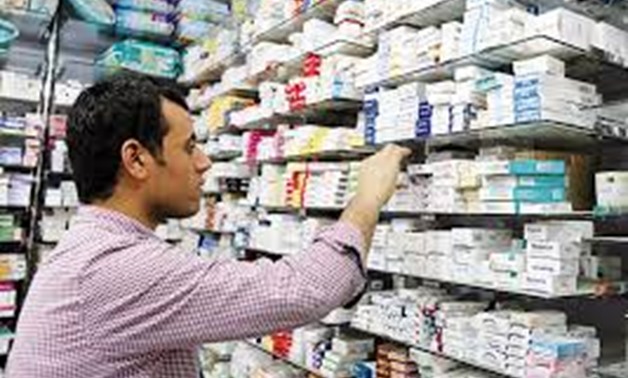CAIRO - 21 November 2024: Ali Al-Ghamrawi, Chairman of the Egyptian Drug Authority, emphasized Egypt's advancements in the pharmaceutical sector. He revealed that the country produces 4 billion packs of medicine annually, with a total market value of LE191 billion, translating to an average of 36 packs per person per month.
The Egyptian Drug Authority is working to localize advanced pharmaceutical manufacturing, focusing on next-generation drugs that are more effective and have fewer side effects. Al-Ghamrawi stated that pharmaceuticals are a crucial component of Egypt’s national income and represent a key area for investment and growth.
Egypt boasts a robust pharmaceutical infrastructure, including 172 pharmaceutical factories housing 800 production lines, 116 factories producing medical devices, 120 factories manufacturing medical products, 4 factories for biologics and raw materials, and 12 factories with international accreditations. Despite 19 factories being temporarily closed for upgrades, the majority of Egypt’s pharmaceutical facilities are operational. The closures include 5 factories that requested shutdowns, 2 veterinary factories, and others under the state-owned holding company, which is undergoing significant modernization.
Egypt is the leading Arab and African country in pharmaceutical production and marketing. Al-Ghamrawi affirmed that Egyptian pharmaceutical products are trusted globally, with quality comparable to those of developed nations.
The shortage of medicines earlier this year stemmed from challenges in acquiring foreign currency for importing raw materials. Al-Ghamrawi explained that the issue was not due to manufacturing inefficiencies but the inability to secure US dollars for imports.
The cost of raw materials accounts for approximately 40% of a drug’s price, making currency fluctuations and inflation significant factors. Egypt currently requires $80 million monthly to import raw materials and an additional $40 million for fully manufactured imports, bringing the total monthly need to $120 million.
To mitigate the crisis, manufacturers utilized strategic stock reserves over seven months to ensure the market was not severely affected. However, by the end of the period, only one month of reserves remained. Al-Ghamrawi emphasized that lessons learned from this crisis have strengthened the country’s ability to manage future challenges.
The Egyptian Drug Authority has prioritized maintaining a stable medicine supply, implementing several measures, including allocating foreign currency for essential imports through emergency meetings chaired by the Minister of Health, ensuring the availability of medications at 28,000 critical pharmacies across the nation, and increasing the number of inspectors from 170 to over 1,000 to monitor production and distribution.
Al-Ghamrawi confirmed that 90–95% of medications are now available in the local market, and efforts are ongoing to ensure no disruptions. Egyptian pharmaceuticals are among the most affordable worldwide. While inflation and currency changes have impacted pricing, the Egyptian Drug Authority has implemented strategies to maintain affordability while ensuring the availability of raw materials.
Al-Ghamrawi underscored that medicine is as vital as other strategic commodities, such as wheat and petroleum. Unlike other goods, however, the production cycle for pharmaceuticals takes 3–4 months, which adds complexity to managing supply.
Addressing the drug shortage required streamlining import processes, with 800–900 invoices for raw materials approved monthly, and adjusting prices for certain medications to balance affordability and availability. The authority has also focused on ensuring local manufacturing meets market demand, prioritizing patient needs over production goals.
Egypt is committed to strengthening its pharmaceutical industry through modernizing facilities to align with international standards, securing sustainable foreign currency allocations for raw material imports, and expanding the availability of medications across urban and rural areas.
Al-Ghamrawi concluded by emphasizing the importance of continued collaboration between manufacturers, the government, and healthcare providers to ensure all Egyptians have access to affordable, high-quality medications.











Comments
Leave a Comment